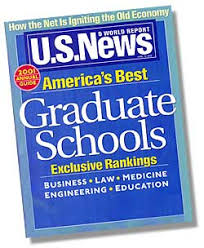 Mikhail Koulikov recently wrote an article examining the academic impact of legal scholarship in disciplines other than law. Specifically, he explores the level of coverage that selected law reviews received in eight general academic databases. His methodology is explained:
Mikhail Koulikov recently wrote an article examining the academic impact of legal scholarship in disciplines other than law. Specifically, he explores the level of coverage that selected law reviews received in eight general academic databases. His methodology is explained:Because nonlegal academics do not generally use legal databases, I developed a study to see whether nonlegal scholars have access to legal journal articles, and thus legal scholarship, through databases they might commonly use. Any in-depth analysis of the coverage of law reviews by major nonlegal academic databases necessarily must be limited to a sample of law reviews, and a selected number of databases. I decided to use the three major general databases that Blessinger and Olle evaluated as a starting point. Expanding on their work, and taking the generally accepted view that law is a social science, my study also examined coverage of law reviews in several other databases that are key to study of the social sciences: JSTOR, PAIS International, Periodicals Archive Online, Worldwide Political Science Abstracts, and the International Bibliography of the Social Sciences. All of these are commonly available databases that should be familiar to most academic researchers, and all five claim to include coverage of law as a discipline.
He limited the scope of his study to the top 20 law reviews in terms of impact factor (per the Journal Citation Reports) and included--for good measure--the general law reviews of the top twenty schools according the U.S. News and World Report Rankings. The following are the first ten law reviews in his ranking in terms of general academic scholarship impact (with impact factor as the number in brackets):
(1) Harvard Law ReviewThis study provides a good illustration of how legal scholarship is used to inform development of other social sciences. I recommend reading Mr. Koulikov's full article.
(2) Columbia Law Review
(3) UCLA Law Review
(4) Texas Law Review
(5) Yale Law Journal
(6) University of Pennsylvania Law Review
(7) California Law Review
(8) Cornell Law Review
(9) Stanford Law Review
(10) Virginia Law Review









